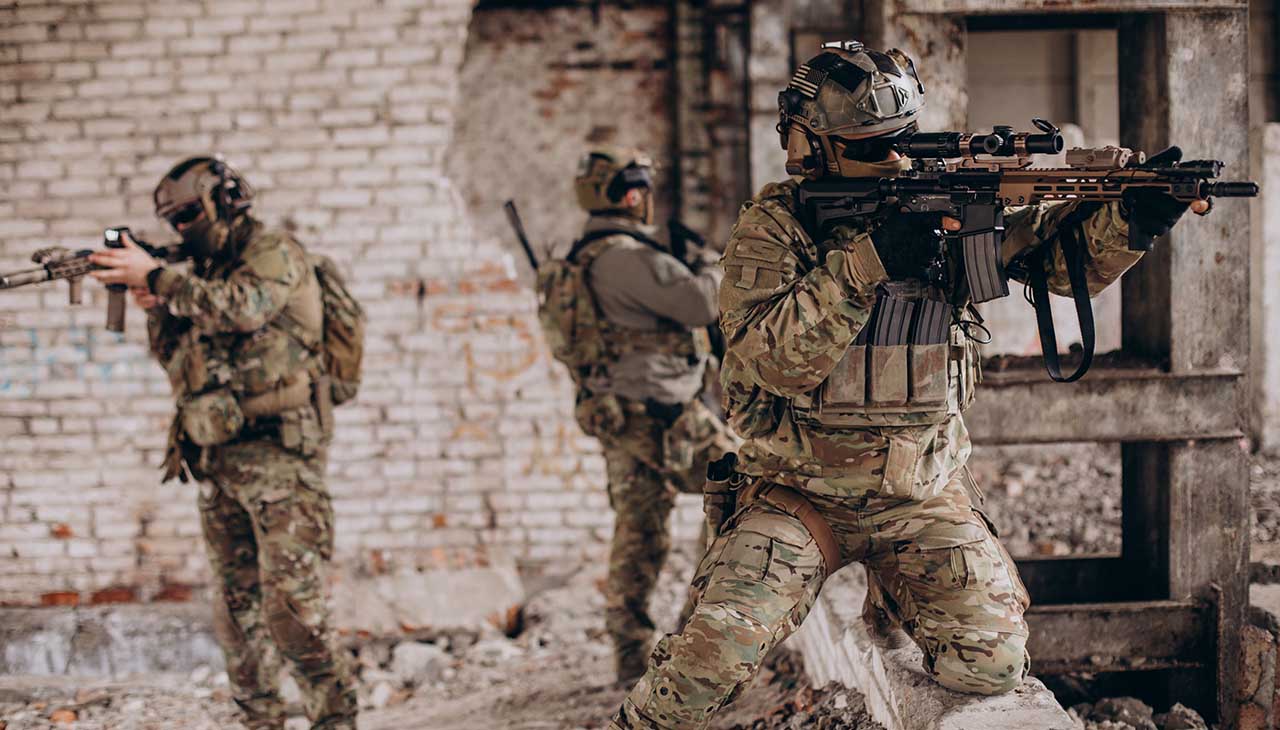The Most Significant Historical World Conflicts Throughout human history, wars and conflicts have shaped the course of civilizations, economies, and cultures. From ancient times to the modern era, historical world conflicts have played pivotal roles in determining the fate of nations, the rise and fall of empires, and the global balance of power. These wars not only altered the geopolitical landscape but also brought profound changes to social structures, technologies, and ideologies.
In this article, we will explore some of the most significant historical world conflicts, examining their causes, key battles, and lasting impacts. By understanding these conflicts, we can gain a deeper appreciation for the complexities of global history and how past struggles continue to influence our world today.

The Peloponnesian War (431–404 BCE)
One of the earliest and most famous historical world conflicts occurred in ancient Greece. The Peloponnesian War was a prolonged struggle between the Athenian Empire and the Peloponnesian League, led by Sparta. This war was not just a military confrontation; it was a battle of ideologies, with Athens advocating for democracy and Sparta promoting a militaristic oligarchy.
The war itself was marked by shifting alliances, brutal sieges, and a devastating plague that killed a large portion of Athens’ population. The conflict ultimately ended with the defeat of Athens, signaling the collapse of its golden age and the rise of Sparta as the dominant power in Greece.
Impact of the Peloponnesian War
The Peloponnesian War left a lasting legacy on Greek society. It exposed the vulnerabilities of Athens’ democracy and underscored the destructive nature of prolonged warfare. In addition, it contributed to the eventual fragmentation of the Greek city-states, which paved the way for the rise of Macedonian power and the subsequent spread of Hellenistic culture across the known world.
The Punic Wars (264–146 BCE)
These wars were among the largest and most devastating conflicts of the ancient world and played a crucial role in the rise of Rome as a dominant Mediterranean power.
The First Punic War (264–241 BCE) began over control of Sicily, with Rome seeking to expand its influence. The Romans were initially inexperienced in naval warfare, but they adapted quickly and won a decisive victory. The Second Punic War (218–201 BCE) is perhaps the most famous, primarily due to the Carthaginian general Hannibal, who famously crossed the Alps with his elephants to invade Italy. Despite his military genius and several victories, Hannibal could not secure a final win, and Rome ultimately triumphed.
The Third Punic War (149–146 BCE) resulted in the complete destruction of Carthage, marking the end of the Punic threat and solidifying Rome’s control over the western Mediterranean.
Impact of the Punic Wars
The Punic Wars had far-reaching consequences. Rome’s victory over Carthage eliminated a major rival and allowed the Romans to expand their empire significantly. The wars also marked the beginning of Rome’s transformation from a republic to an empire. The Roman domination of the Mediterranean paved the way for the spread of Roman culture, law, and infrastructure across a vast region.
The Hundred Years’ War (1337–1453)
Stretching over more than a century, the Hundred Years’ War between England and France was one of the most protracted historical world conflicts in European history. At its core, the war was a struggle for control over the French throne.
The war saw several iconic battles, including the Battle of Agincourt, where English forces, led by Henry V, defeated a much larger French army. Over time, the French, under the leadership of figures like Joan of Arc, managed to turn the tide and reclaim their territories.
Impact of the Hundred Years’ War
The Hundred Years’ War had profound effects on both England and France. In France, the war led to the rise of strong national identity and the consolidation of power in the monarchy. In England, however, the war contributed to internal instability and the eventual outbreak of the War of the Roses. The conflict also signaled the decline of feudalism and the rise of early modern warfare, with longbowmen and gunpowder weapons playing increasingly central roles.
The Napoleonic Wars (1803–1815)
The Napoleonic Wars were a series of conflicts involving Napoleon Bonaparte’s French Empire and various coalitions of European powers. After rising to prominence during the French Revolution, Napoleon sought to expand French influence across Europe. His conquests reshaped the map of Europe and sparked a wave of revolutionary ideals that spread throughout the continent.
Napoleon’s military genius allowed him to win numerous battles, including the Battle of Austerlitz, where his forces decisively defeated the Russian and Austrian armies. However, his eventual invasion of Russia in 1812 marked the beginning of his downfall. The Russian winter and logistical challenges decimated the French army, leading to a series of defeats and ultimately Napoleon’s exile.
Impact of the Napoleonic Wars
The Napoleonic Wars had a lasting impact on European geopolitics. The wars led to the redrawing of national boundaries at the Congress of Vienna and laid the groundwork for the rise of nationalism in the 19th century. Additionally, the Napoleonic Wars prompted advancements in military strategy, as well as the development of new technologies like the French revolutionary artillery.
World War I (1914–1918)
One of the most catastrophic historical world conflicts of the 20th century was World War I, also known as the Great War. The war involved many of the world’s great powers, divided into two major alliances: the Allies and the Central Powers. The conflict was triggered by the assassination of Archduke Franz Ferdinand of Austria-Hungary, but the underlying causes included nationalism, imperialism, and complex webbed alliances.
The war was fought primarily in Europe, but it spread to other parts of the world as well. Trench warfare, machine guns, and chemical weapons made the war especially brutal and deadly. The war ended with the signing of the Treaty of Versailles, which imposed harsh penalties on Germany and reshaped the political landscape of Europe.
Impact of World War I
World War I had profound and far-reaching consequences. It led to the downfall of several empires, including the Austro-Hungarian, Ottoman, Russian, and German empires. The war also set the stage for World War II, as the harsh terms of the Treaty of Versailles fostered resentment in Germany.
World War II (1939–1945)
World War II is arguably the most significant historical world conflict in terms of global impact. It involved most of the world’s nations, including all of the great powers, and was characterized by vast military operations, genocide, and unprecedented technological advancements. The war was sparked by Germany’s invasion of Poland, but its roots lay in the unresolved issues of World War I and the rise of totalitarian regimes.
The war culminated in the defeat of the Axis powers, the collapse of Nazi Germany, and the establishment of the United Nations to promote global cooperation and prevent future conflicts.
Impact of World War II
The impacts of World War II are still felt today. It led to the creation of the Cold War, a period of intense political and military rivalry between the United States and the Soviet Union. The war also accelerated technological advancements, including the development of nuclear weapons. Perhaps most importantly, the war highlighted the horrors of totalitarianism and genocide, leading to a global commitment to human rights and the establishment of international institutions to maintain peace.
The Korean War (1950–1953)
The Korean War was a significant historical world conflict that marked the beginning of the Cold War’s military confrontations. It was fought between North Korea, supported by China and the Soviet Union, and South Korea, backed by the United States and other Western allies. The conflict began when North Korea invaded South Korea, and the fighting quickly escalated into a proxy war between the communist and capitalist blocs.
Despite heavy casualties and widespread destruction, the war ended in a stalemate, with Korea remaining divided along the 38th parallel. Although no formal peace treaty was signed, the armistice created a tense ceasefire that persists to this day.
Impact of the Korean War
The Korean War solidified the division of Korea into two ideologically opposed states, with the North remaining under communist rule and the South developing as a capitalist democracy. The war also had broader implications for the Cold War, setting the stage for future conflicts in Southeast Asia and contributing to the rise of military alliances such as NATO and SEATO.
Conclusion
The historical world conflicts discussed above represent just a small fraction of the many wars that have shaped human history. From ancient struggles for power to modern-day geopolitical rivalries, these conflicts have had lasting impacts on our world. They remind us of the cost of war—both in terms of human lives and societal upheaval—and the ongoing need for diplomacy, dialogue, and cooperation in preventing future conflicts. Understanding the past is key to ensuring a more peaceful and prosperous future for all.





More Stories
What Celebrity Fashion Trends Will Dominate
Dress Like a Celebrity in 2025: Easy Style
Warm & Wonderful: Winter Cardigans Women Adore